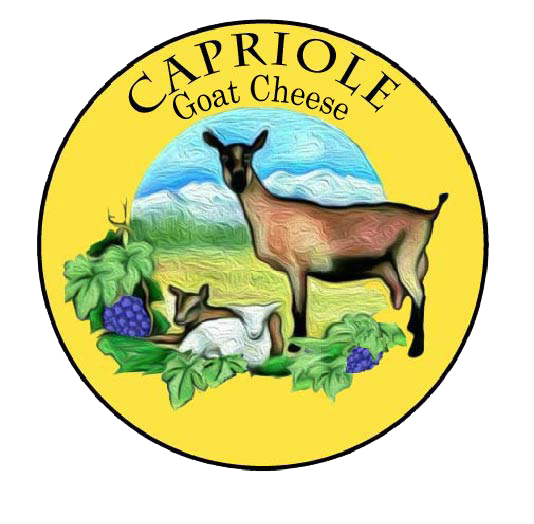Milk Producers
Of all the ingredients in cheese, milk is obviously the most important. After many years building our herd, managing genetics and milk quality, and relying only on our own milk for cheesemaking, we were anxious about purchasing milk and losing control of quality and the quantities we could process in our small creamery. We were the last commercial dairy in our county, and with small dairies dying all around us, we also felt challenged to support other Indiana dairy farmers by providing a secure outlet for their milk. We actively encourage quality by paying premium prices and delivery costs for out-of-season, low bacteria milk, with extra incentives for butterfat, protein, and feeding non-GMO feeds.
Milking goats is both more time consuming and costly than milking cows because it requires 6-8 times the number of goats to produce the same amount of milk as a productive dairy cow. The higher cost of goat milk and goat milk cheeses is in labor and management. For continued success, goat farms need a succession plan beyond the life span and health of their founders. This is the difficult balance, the ‘sweet spot’, between size, cost, and sustainability, that is particularly a factor for goat farms and creameries. There is no one model fits all, but all are costly.
In 2012, after 36 years of breeding and milking dairy goats at Capriole, we simply ran out of room, energy, and labor to support our growing herd. It was both a relief and a heartbreak when we sold our herd to regional small dairies, which allowed us to purchase milk and concentrate on cheesemaking. This change was also an answer to the problem of a mismatched supply and demand which had always been a particular problem in Indiana and Kentucky. Since this change, there have been many adjustments that needed to be made —distance, seasonal supply and demand, and transportation cost— but we believe that the quality of Capriole cheeses has improved greatly because of our focus on cheesemaking, and the quality of milk produced at these local dairies. To develop a dependable winter milk supply, we’ve also added the milk of local Amish producers who worked in the area of these farmers. The holistic approach to farming and raising goats and their addition of winter milk has been another answer for us, as well as for their growing family’s goal to establish a self-sufficient farm.
Sycamore Land Trust
From conservation easements to nature preserves, Sycamore Land Trust offered us protection and land stewardship for our historic family farm.
“Nature is vivacious. Give the plants, animals, bugs, fungi, and waterways a chance to survive, and they’ll thrive. But when 85% of Indiana’s original forests have been destroyed, when species are put at risk of extinction, and when ponds and creeks fill with contaminants and face erosion, nature needs our help. Sycamore was founded in 1990 by a bunch of Hoosiers who realized the value of protecting these beautiful natural resources.
Protection, or land stewardship as we call it, involves all the classic conservation techniques: planting native species like milkweeds for monarch butterflies, monitoring threatened species like the Indiana bat, planting trees to control erosion, cleaning up trash and debris, building trails for proper visitation and use, removing invasive species that crowd out helpful plants, strategic land acquisitions to build onto large wildlife corridors, and more. Sycamore does not allow commercial timbering on properties that we own”.
ACS has long been the primary network and resource for American artisan cheesemakers, and its unique membership of cheesemakers-retailers-distributors-food writers-enthusiasts is largely responsible for the galaxy of incredible American cheeses available to the public today. It has truly been "the leader in promoting and supporting American cheeses.” At Capriole’s first ACS Conference in 1988, there were several tables of 100 cheeses presented for judging and public tasting. In 2017, almost 2000 cheeses were represented. The ACS mission is to provide “the cheese community with educational resources and networking opportunities, while encouraging the highest standards of cheesemaking focused on safety and sustainability.” The ACS annual conference and competition has become the place where we can come together to learn, connect, and judge the quality of artisan cheeses. For all of us who were there at its beginnings, served on its committees and board, it has given us and our cheeses a lifetime of support and personal friendships.
La Guilde has grown significantly from its founding in the 1960s by famed affineur, Pierre Androuet. What began as a small network of fermier producers and marketers of unique French cheeses, expanded in the early ‘90s to include a handful of American cheesemakers and retailers. Capriole’s founder, Judy Schad, was one of the first of these American inductees in 1991. Since that time, the Guilde has grown under the leadership of Roland Barthelmy to include over 5,000 professional cheesemakers, processors, affineurs, traders and retailers and is now an international organization with chapters all over the world. As a judge in a 1994 Guilde Competition in St. Remy, France, Judy sampled the unique goat cheeses of Provence that have inspired much of Capriole’s cheesemaking.


